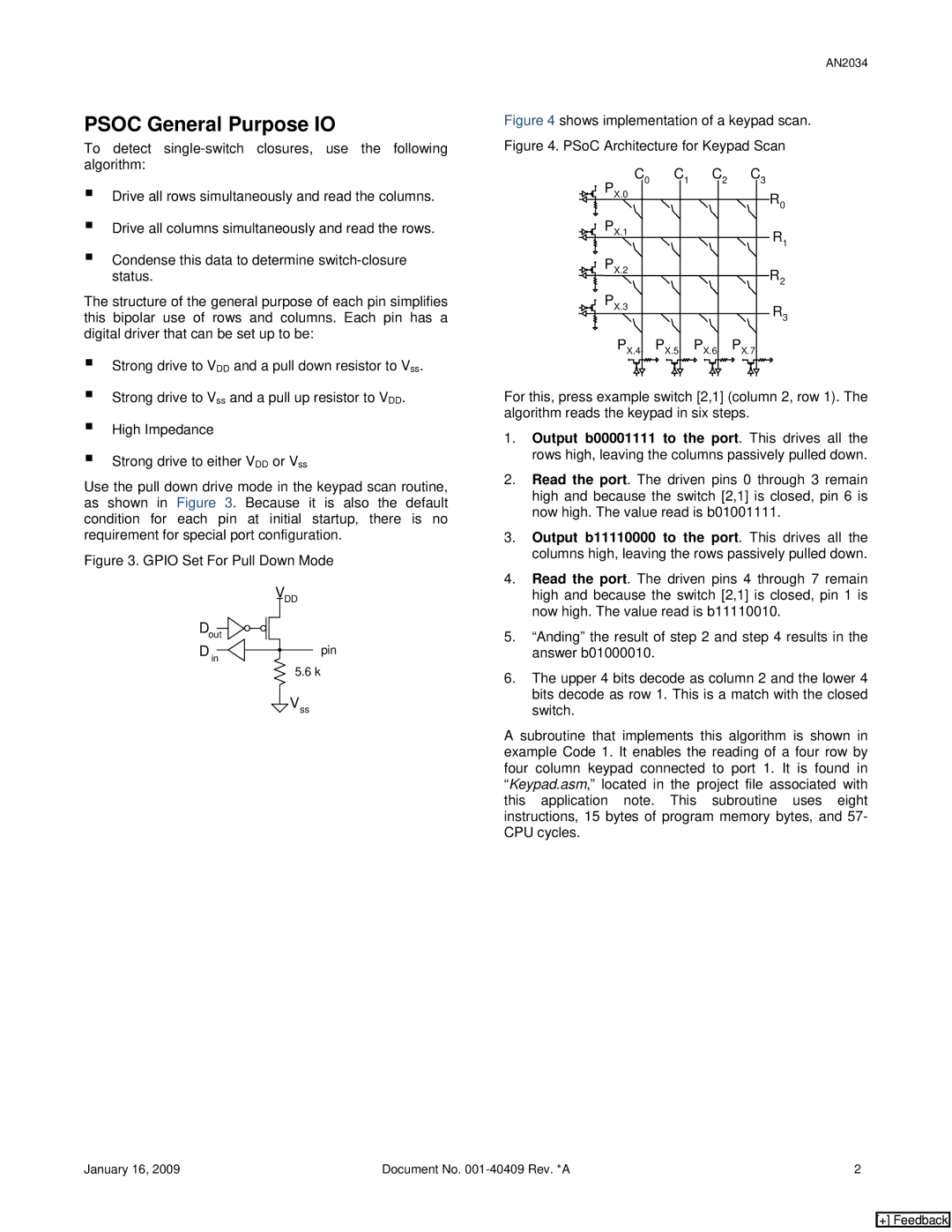
PSOC General Purpose IO
To detect
Drive all rows simultaneously and read the columns.
Drive all columns simultaneously and read the rows.
Condense this data to determine
The structure of the general purpose of each pin simplifies this bipolar use of rows and columns. Each pin has a digital driver that can be set up to be:
Strong drive to VDD and a pull down resistor to Vss.
Strong drive to Vss and a pull up resistor to VDD.
High Impedance
Strong drive to either VDD or Vss
Use the pull down drive mode in the keypad scan routine, as shown in Figure 3. Because it is also the default condition for each pin at initial startup, there is no requirement for special port configuration.
Figure 3. GPIO Set For Pull Down Mode
VDD
Dout ![]()
D in | pin |
| 5.6 k |
![]() Vss
Vss
AN2034
Figure 4 shows implementation of a keypad scan.
Figure 4. PSoC Architecture for Keypad Scan
C0 | C1 | C2 | C3 |
PX.0 |
|
| R0 |
|
|
| |
PX.1 |
|
| R1 |
|
|
| |
PX.2 |
|
| R2 |
|
|
| |
PX.3 |
|
| R3 |
|
|
| |
PX.4 | PX.5 | PX.6 | PX.7 |
For this, press example switch [2,1] (column 2, row 1). The algorithm reads the keypad in six steps.
1.Output b00001111 to the port. This drives all the rows high, leaving the columns passively pulled down.
2.Read the port. The driven pins 0 through 3 remain high and because the switch [2,1] is closed, pin 6 is now high. The value read is b01001111.
3.Output b11110000 to the port. This drives all the columns high, leaving the rows passively pulled down.
4.Read the port. The driven pins 4 through 7 remain high and because the switch [2,1] is closed, pin 1 is now high. The value read is b11110010.
5.“Anding” the result of step 2 and step 4 results in the answer b01000010.
6.The upper 4 bits decode as column 2 and the lower 4 bits decode as row 1. This is a match with the closed switch.
A subroutine that implements this algorithm is shown in example Code 1. It enables the reading of a four row by four column keypad connected to port 1. It is found in “Keypad.asm,” located in the project file associated with this application note. This subroutine uses eight instructions, 15 bytes of program memory bytes, and 57- CPU cycles.
January 16, 2009 | Document No. | 2 |
[+] Feedback
